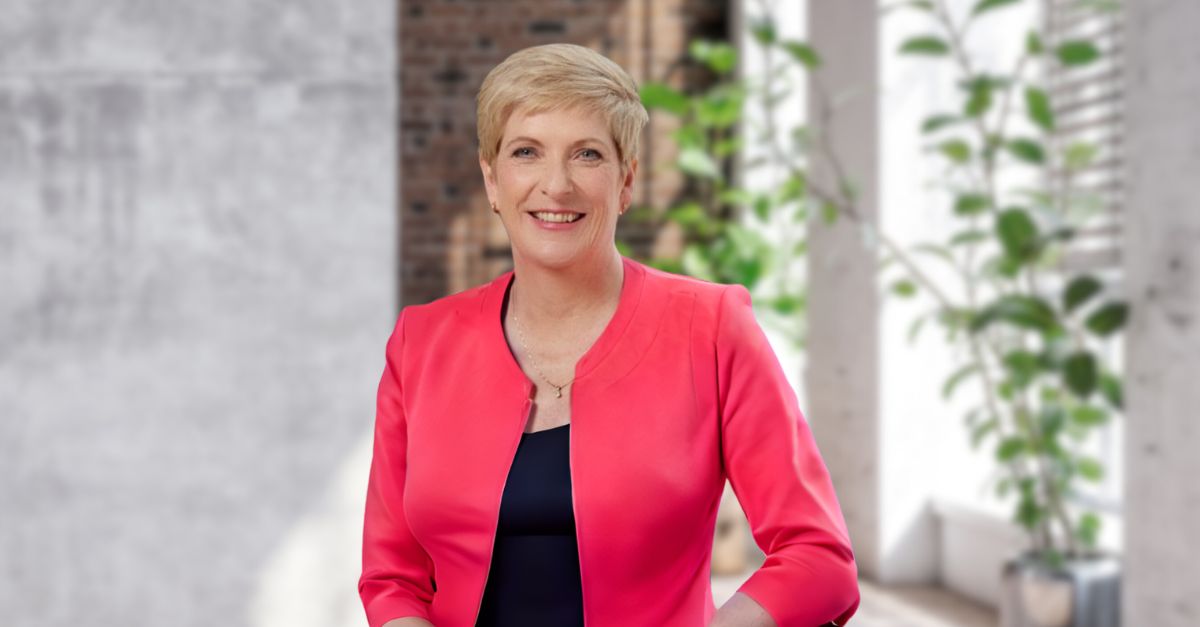Estate Planning
Secure your loved ones’ financial futures through holistic estate planning that preserves your wealth.
THE MiQ DIFFERENCE
What Makes Us Leading Mortgage Brokers?
Finding a broker you can genuinely trust isn’t easy.
But MiQ is different.
We approach your loan holistically, assessing its impact on your current situation and your long-term business objectives.
We’re paid by commission – and our diverse lending panel means there’s no incentive for us to recommend a particular lender.
And we have access to a network of both internal and external specialists, such as accountants and solicitors, who can support your business journey.
Your business’s next step starts right here, with us.
- Diverse lending panel with 25+ lenders
- Holistic analyses of how loans impact your business objectives
- Collaboration with external finance professionals like accountants
Client Testimonial
“I’m not one to leave reviews but my recent interaction with Kylie has been so pleasant and seamless, I could not, not share the experience. She has been prompt and transparent with me through the whole process, which has made it a lot less stressful, and I could not thank her enough for it.”
Viv Dinh
BRISBANE
Our Estate Planning Solutions
What We Do
Estate Planning Strategies
Develop a Holistic Estate Plan
Estate planning is more than just making a Will.
It’s about the intergenerational transfer of wealth – passing down as much of your financial legacy as possible to the right people.
As holistic advisers, we’ll help you develop a strategy that matches that goal, with advice that ranges from structures to superannuation.
We’ll also support you during meetings with other estate planning professionals, like solicitors and accountants, helping you understand and implement their advice in the best possible way.
Schedule a free 30-minute consultation to find out more.
- Testamentary trusts and other estate planning mechanisms
- Planning for blended and non-nuclear family structures
- Business succession planning
Superannuation Estate Planning
Preserve Your Superannuation
After your home, your super is probably your most valuable asset.
Have you thought about how it will be passed on after you die?
Because super isn’t automatically included in your estate and has unique tax implications, getting superannuation-specific advice is essential.
Find out how an MiQ adviser can help you plan for the transfer of your super balance in an SMSF or APRA-regulated fund.
- Advice about death benefit nominations
- SMSF-specific advice
- Advice about tax implications and potential challenges
Tax Minimisation
Reduce Your Estate’s Tax Liability
One of the easiest ways to improve your financial legacy:
Reduce the tax potentially payable by your estate.
Every estate planning decision you make has unique tax implications, which is why choosing the right strategies is so important.
Your MiQ adviser can work with you to develop a tax-tax efficient estate plan, with advice spanning structures like testamentary trusts and more complex considerations like the impact of foreign beneficiaries.
Book a 30-minute consultation to find out more about how our estate planning experts can help.
- Tax-efficient wealth transfer structures
- Superannuation strategies
- Inter-jurisdictional advice
Life doesn’t stop at 65.
Find out how planning for retirement can help you create a better future.
Your Estate Planning Questions, Answered
FAQs
An effective estate plan is one that passes on your wealth in accordance with your wishes. The accuracy with which your wishes will be carried out is affected by three main factors:
- how clear your wishes are
- the extent to which your loved ones carry out your wishes
- the amount of wealth that gets ‘lost’ to estate administration costs, legal disputes, and tax.
When you’re undertaking estate planning, you need to address all three factors. For example, you could clarify your wishes through a properly drafted Will and other mechanisms like a statement of wishes, an EPOA, and an advance health directive.
That’s why the most effective estate plans are built on holistic advice from financial advisers, succession lawyers, and tax specialists. Each discipline brings something necessary to the table, and relying on just one estate planning professional can mean certain areas aren’t properly addressed.
If a loved one feels that you haven’t provided for them properly under your Will, they can lodge a family provision claim in the Supreme Court. There are different eligibility requirements across different states, but, generally, only spouses, children and dependents can lodge claims.
If the Court finds that you haven’t sufficiently provided for a claimant, it can override your Will and make a family provision order, which will give that person ‘adequate provision’ from your estate. Even if a claim isn’t successful, the Court may order that legal costs be paid by your estate.
A testamentary trust is a trust that is only created when you die. Rather than your estate being distributed directly to your beneficiaries, you can create a testamentary trust under your Will, which holds your estate’s assets on behalf of your beneficiaries.
Testamentary trusts, like all trusts, have a trust deed (the rules that govern how the trust works) and at least one trustee, who controls your trust’s assets. Testamentary trusts can either be discretionary (where the trustee(s) determine how the assets are distributed to your beneficiaries) or fixed (where the instructions for distributions are explicit).
Because your estate’s assets aren’t passed directly to your beneficiaries, testamentary trusts can be a useful estate planning vehicle. Their structure prevents third parties, such as your beneficiaries’ creditors, from accessing your assets, keeps your beneficiaries from making poor financial decisions with their inheritances, and provides certain tax advantages.
You can find the cut-off limits for a full Age Pension, a part pension, and a transitional rate of pension here. If you’re not eligible for the pension because your assets are worth too much, you may be able to apply for asset hardship provisions or take advantage of the Home Equity Access Scheme.
Probate is the process of validating a deceased person’s Will through the Supreme Court of whichever state or territory their assets are held in. A grant of probate is a court document that allows that person’s executor to administer their estate. For example, a bank wouldn’t normally allow an executor to take control of a deceased person’s bank account unless they had a grant of probate.
You can only avoid probate if either:
- the assets being held by an asset-holder, such as a bank, are under their small estates threshold, which varies between institutions (CommBank, for example, only requires a grant of probate if the deceased person’s solely held accounts total more than $100,00)
- the deceased person dies intestate (without a Will), in which case their loved ones will need to apply for letters of administration instead.
Certain assets may not require a grant of probate to control. For example, a binding death benefit nomination means your super fund will release your super directly to your chosen beneficiaries. Another way to avoid probate is by jointly holding an asset, in which case ownership of the asset automatically passes to the survivor(s).
No, your superannuation is not automatically part of your estate. If you have binding death benefit nominations in place, your super will pass directly to your chosen beneficiaries. If you have non-binding nominations or haven’t nominated anyone, your super fund’s trustee can decide which eligible dependants they pay your super to.
You can make your super part of your estate by nominating your personal legal representative. It will then be distributed under your Will to any beneficiary of your choice. Keep in mind that, by adding your super to your estate, it may become vulnerable to Will challenges and family provision claims.
Insights
Build Your Financial Knowledge
Learn more about home loans with our easy-to-read articles and guides.
Pass your financial legacy to the people you love.
Book A Free 30-Minute Consultation




